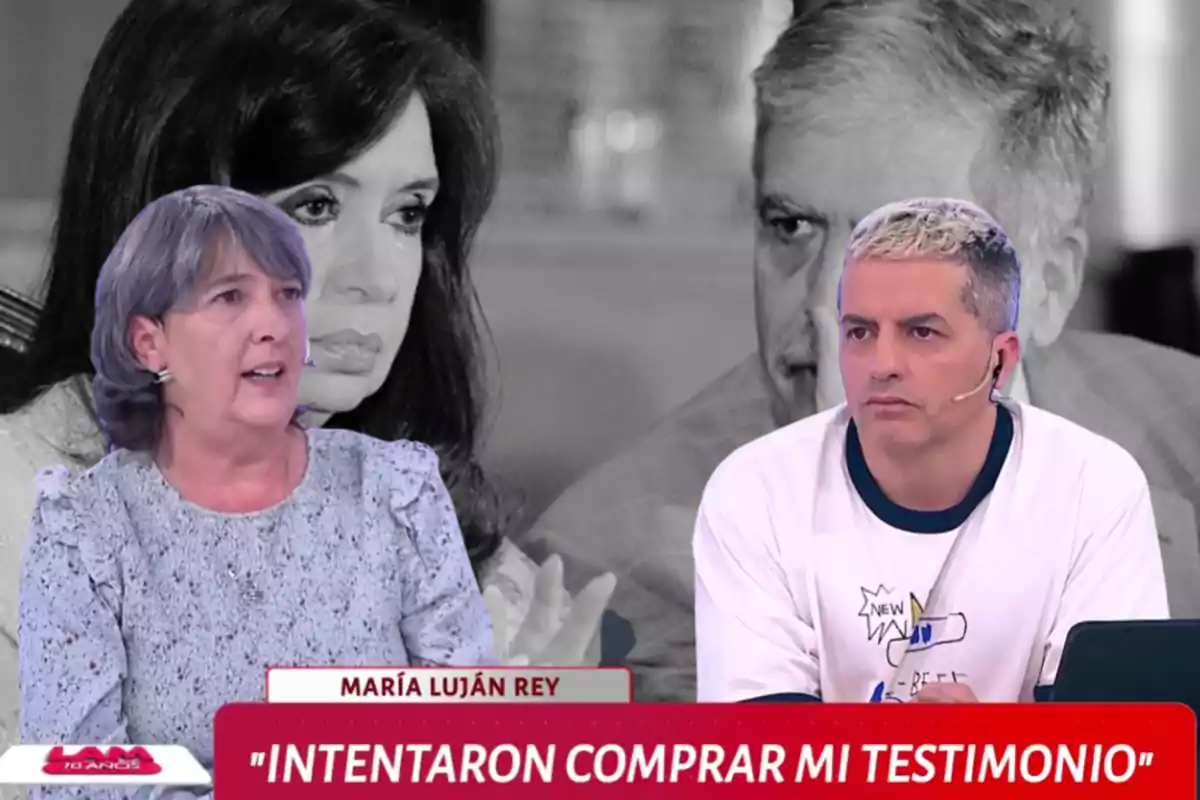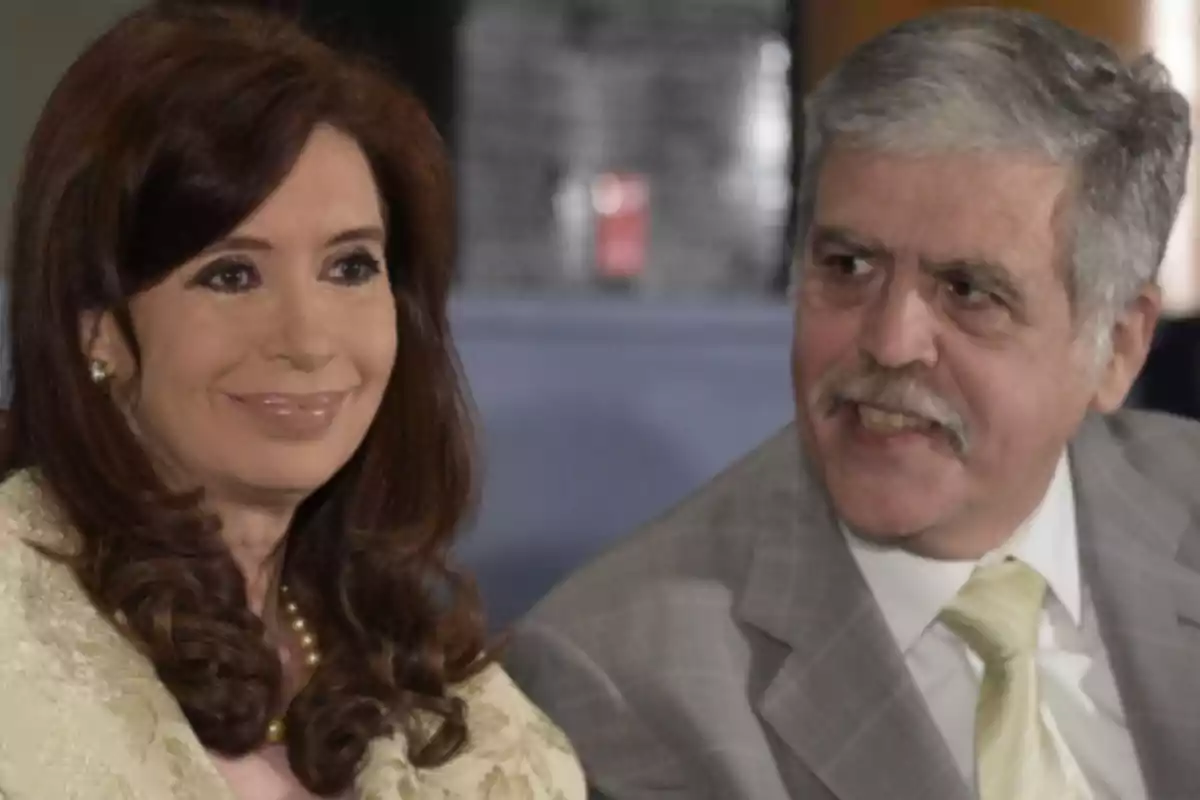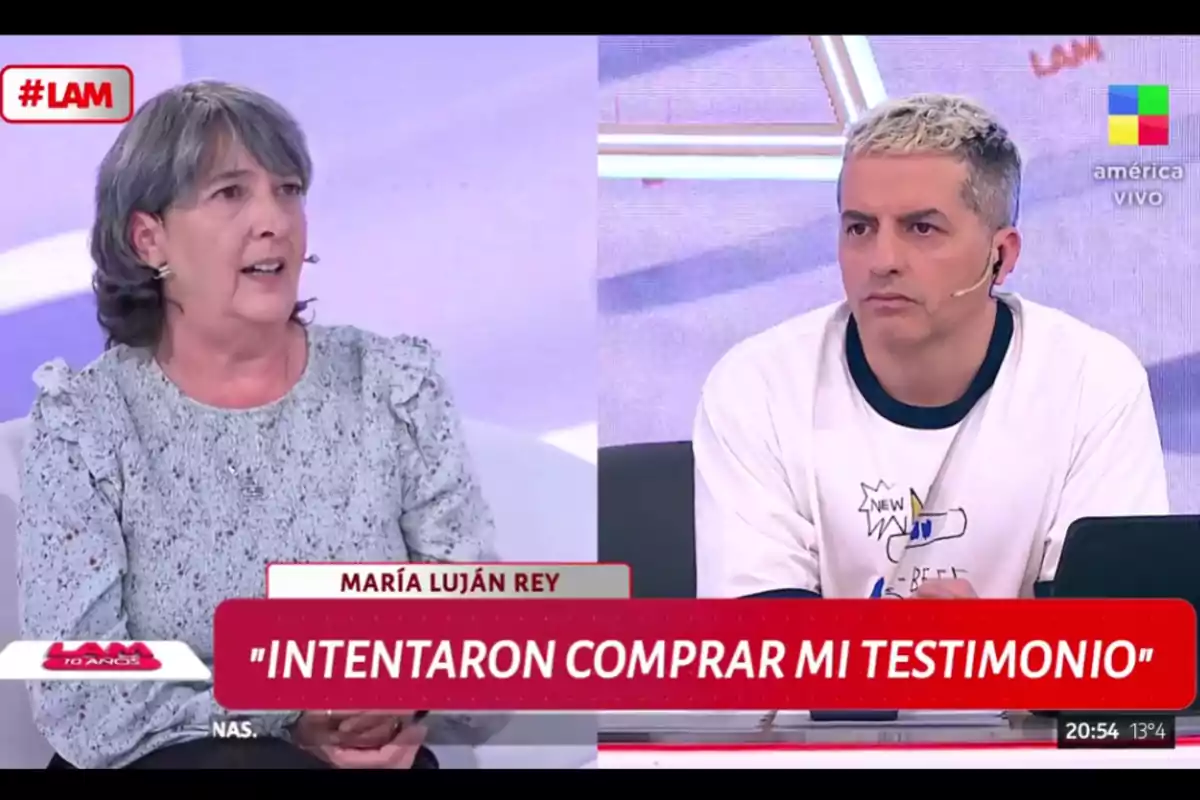
'Corruption killed my son': María Luján Rey's testimony on LAM
Lucas Menghini's mother celebrated Cristina Kirchner's conviction and revealed how Kirchnerism tried to buy her silence
In a new broadcast of the program LAM, hosted by Ángel de Brito on América TV, María Luján Rey, mother of Lucas Menghini Rey, one of the 52 fatal victims of the Once Tragedy, made a public reappearance with a powerful message: "Corruption killed my son."
More than a decade after the Sarmiento train crash at the terminal station, the former national deputy once again targeted Kirchnerism and celebrated the recent final conviction of Cristina Fernández de Kirchner for fraudulent administration. Rey stated that both cases –the railway tragedy and the Vialidad Case– are marked by the same pattern: the structural corruption that directly affected citizens' lives. "Having justice work benefits all of us," she affirmed.
From the Once Tragedy to Comodoro Py: two cases united by corruption
On February 22, 2012, a Sarmiento railway train crashed at Once station. Fifty-two people died and more than 700 were injured. María Luján Rey lost her 20-year-old son and, since then, she has become one of the most active voices in the pursuit of justice.
During her appearance on the program, María Luján Rey highlighted the similarity between that case and the recent confirmation of the conviction of the former president:
"When Once happened, the justice system was the same as it is now. Nobody believed anyone would go to prison. However, something unprecedented was achieved: in three years there was a trial, 29 defendants, 26 convicted. Among them, officials from the government at that time."
Bribes, threats, and silence: the machinery of power
One of the most striking parts of the testimony was when she revealed direct bribery attempts just a week after burying her son:
"I received at my home people close to Minister Julio De Vido. They offered me money, a car, a job with 'Don Julio'. When I refused, they asked me if I wasn't afraid."

According to her account, several relatives of victims went through similar situations. For months, they lived under threats, wiretapping, and surveillance. "We lived in fear. We had cars parked at the door, we felt our phones were being tapped," she stated.
"They thought that because we were poor, we had a price"
The former deputy offered a deep analysis of the way in which Kirchnerism, in her words, underestimated the victims of Once.
"It was a train full of workers and students from the suburbs. Many with precarious jobs, without health insurance. They thought that because we were poor, we had a price. But they couldn't buy anyone".

Marcela Feudale, a panelist on the program and known for her sympathy with Kirchnerism, asked her if she was able to testify about the threats received, and Rey confirmed that everything experienced was recounted in public articles, although at the time she felt fear for her safety and that of her family.
An open wound that remains
"First of all, not having my son is a daily lesson. There isn't a moment when you say 'that's it, I'm used to it.' That doesn't happen," she said firmly. She added:
"I didn't want to believe the narrative that Cristina Kirchner's government tried to impose, that it was the fault of a sleeping train driver. It was corruption."
Finally, she questioned the hate speech coming from the spheres of power: "When someone with power amplifies violence, that spreads. After that, you don't know what the person who crosses your path on the street is going to do"
María Luján Rey en LAM hizo fuertes crítícas a la currupción kirchnerista.
More posts: